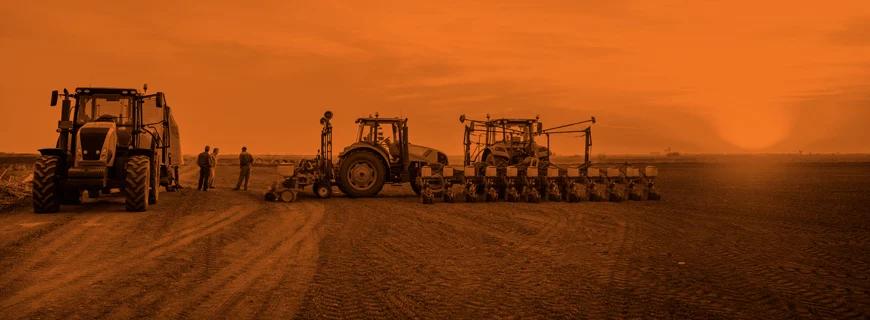
Prepping for Planting Season
The way we care for tires changes from season to season. As an implement dealer, it is a big part of the job to help farmers prepare their machinery for planting season.
Tractors, tillage equipment, and planters may have been in working order when they were put away for the winter, but after sitting for so long, that is likely no longer the case.
It is costly to have tire problems in the field when planting season rolls around. Farmers often work against the weather and only have a small window of opportunity to get their fields planted on time. Delayed planting can cost as much as $570 per hour. So with the cold winter weather slowly fading away, we want to give you a couple of tire tips to keep the tires on your lot looking and running as good as new.
Check Tire Pressure
Checking tire pressure on the machinery in your lot should be a year-round task, but it is twice as important to check it when the weather starts to change. Cold weather can cause significant swings in tire pressure. As a general rule, for every 10-degree Fahrenheit drop in temperature, the temperature in your tires will decrease by about three psi. The tires on your machinery are as essential as the machine itself, so be sure to take care of them by checking the tire pressure consistently as the temperature begins to change.
Store Machinery Properly
The second tip we have for keeping machine tires in check when planting season arrives is to store them properly. Lengthy exposure to sunlight, water, cold winter air, and freeze-thaw conditions can wear down and devalue tires’ rubber. Roll those tires into a shed or find a way to cover them up. Be sure tires are stored upright, and if they are on rims, slightly under-inflated. Also, be sure to examine the sidewall closely. You may need to replace those tires if you see any cuts, snags, or exposed cords. Checking tires that sat on your lot all winter is a must when spring arrives.
General Tire Care Tips
Be sure to check the tread depth, tire wall wear, and of course, the tire pressure before the machine heads out into the field. A flat or blown-out tire can cause severe delays during planting. Check wheel bearings by listening for any popping, squeaking, or grinding noises when your wheels are in motion. If you hear anything out of the ordinary, you may need to replace the wheel bearings.
Here are a few extra tips to help you inspect your tires this season:
- Check tire pressure, adjust up or down if needed.
- Look for sidewall cracks, cuts, or other damage.
- Examine tread and consider replacing if there is less than 20% tread left.
- Inspect tread areas for stubble damage and exposed cords and replace tires with apparent damage.
- Study the ground contact area to ensure there is no gap between the lugs and the ground.
- Watch for cracks, corrosion, and debris on valve stems and make sure they’re clean and intact.
- Survey and fully tighten nuts and bolts.
As a dealership, it is crucial to make sure you have everything you need to get a machine up and running like new after a long winter. Planting crops is the most important thing done on a farm, and your farmers absolutely cannot miss a day of planting.
We wish you the best of luck this planting season, and as always, the experts at AXON are available to help answer any tire, wheel, or track questions you may have. We have 100 years of experience in the farming industry and are always eager to help.

